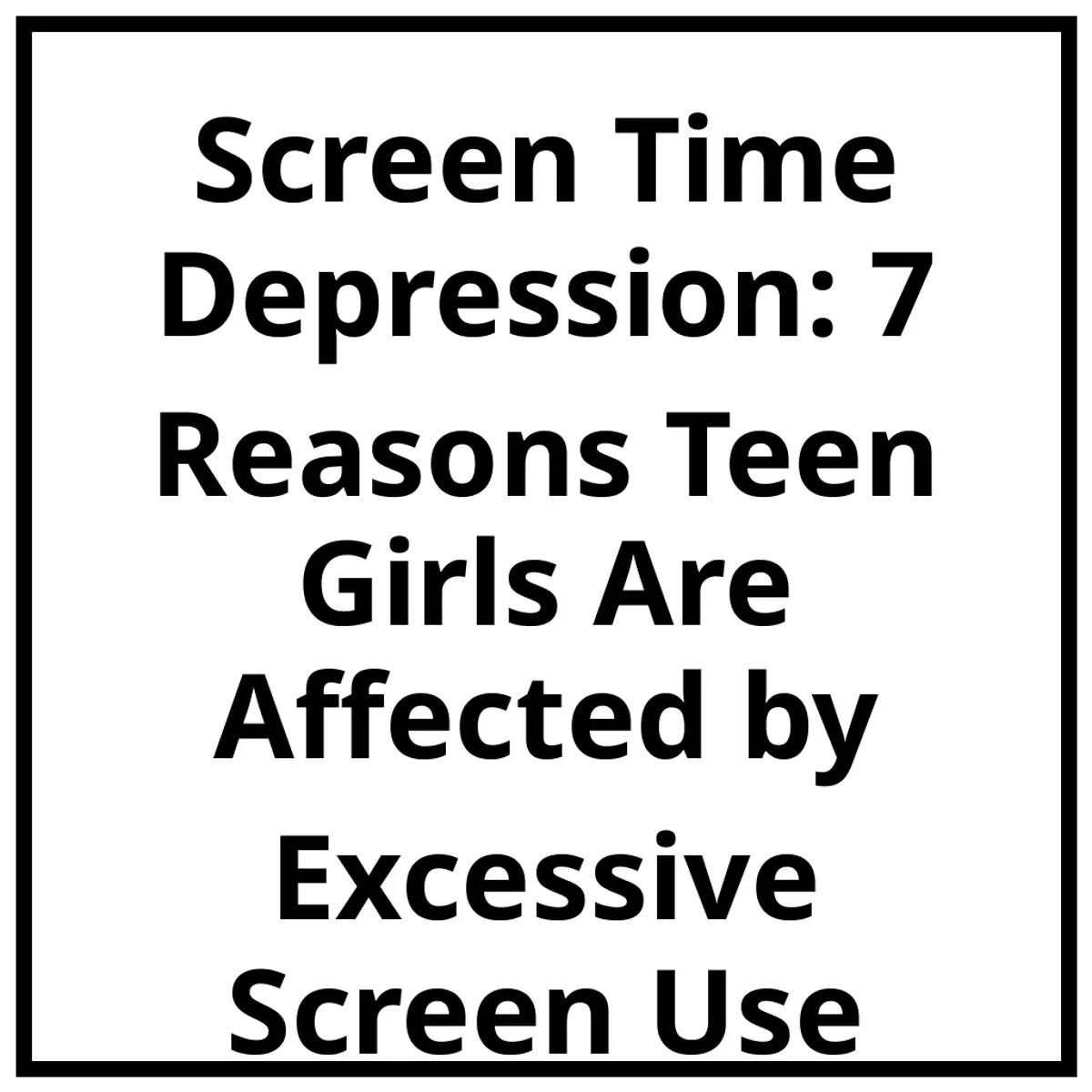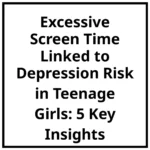Discover how excessive screen time is linked to depression in teen girls, uncovering the crucial role of sleep quality. Learn strategies for healthier screen habits.

In today’s digital age, the relationship between screen time and mental health, especially among teenagers, has sparked significant concern. A recent study published in PLOS Global Public Health dives deep into this issue, revealing alarming connections between excessive screen use and depression among teenage girls, primarily through the lens of disrupted sleep patterns. This insightful research amplifies the call for necessary changes in how our youth engage with technology.
Read Also – 👉👉Mpox Vaccination Campaign Uganda: 100,000 Additional Doses to Combat Rising Cases👈👈
The Study: An Overview of Findings
Excessive Screen Time and Its Effects on Sleep
The study examined over 4,810 Swedish students aged 12 to 16, systematically analyzing patterns over multiple time points. Researchers discovered that increased screen time leads to poorer sleep quality and duration. In fact, the findings indicated that sleep disturbances could explain up to 57% of the link between excessive screen use and depressive symptoms in girls. This highlights a critical pathway: as screen time rises, so too does the risk of compromised sleep, which in turn elevates the risk of depression.
Gender Disparities in Screen Time Effects
Interestingly, the study revealed a stark contrast between genders. Girls were more prone to developing depressive symptoms through impaired sleep, while boys seemed to experience a more direct relationship between screen time and depression without significant mediation from sleep issues. This nuanced difference sheds light on why addressing screen time in a gender-sensitive manner is crucial for mental health interventions.
Recommendations for Healthier Screen Habits
Practical Steps to Mitigate Risks
- Limit screen time to no more than two to three hours per day.
- Encourage screen-free zones and times at home to foster family interaction.
- Promote physical activities as alternatives to screen use.
- Teach teenagers about the importance of good sleep hygiene.
- Provide tools or apps that can help monitor and limit screen time.
Expert Perspectives on Screen Time and Mental Health
Understanding the Impacts of Screen Time
Dr. Sebastian Hökby, the lead researcher, emphasizes that screen time does more than just consume time; it directly impacts the sleep cycle, which is crucial for psychological health. He posits that reducing screen time may serve as a practical intervention to mitigate rising depression rates among teens. He wasn’t alone in these observations; Dr. Jason Nagata echoes these sentiments, pointing out the competition screen time has with other positive activities like physical interaction and exercise.
Broader Societal Impact and Parental Involvement
The implications of this study extend into public health policies where implementing screen time guidelines could potentially lower incidence rates of depression among youth. Parents play an essential role in crafting a balanced media usage plan, establishing clear boundaries around screen time, which can foster healthier habits in children. Furthermore, schools and community leaders need to be proactive, incorporating screen time management into health education to equip young people with skills to navigate their digital landscape responsibly.
Navigating Controversy: The Digital Dilemma
Finding Balance in a Tech-Heavy World
- Maintain awareness of the valuable role technology plays in education and social connectivity.
- Recognize that not all screen time is harmful; constructive use can promote learning.
- Strive to balance technology use with physical activity and real-life social interactions.
Moving Forward: Cultivating Healthier Screen Habits
As technology continues to weave into the fabric of our daily lives, recognizing the potential risks associated with excessive screen time becomes increasingly vital. This study serves as a wake-up call, particularly for young girls who appear to be disproportionately affected. The need to foster healthier digital habits cannot be overstated. Together, families, educators, and policymakers must prioritize mental well-being by creating a focused dialogue around screen use, sleep hygiene, and addressing depression. By encouraging a more balanced relationship with technology, we can help ensure that its benefits do not come at the cost of our youth’s mental health.
FAQs About Screen Time and Depression in Teen Girls
What is the link between screen time and depression in teenage girls?
Excessive screen time has been linked to an increase in depressive symptoms, particularly among girls, primarily due to its adverse effects on sleep quality and duration.
How does screen time affect sleep?
Increased screen time disrupts sleep patterns, causing poor sleep quality and shorter sleep duration, which can lead to mental health issues.
What can parents do to limit screen time for their teens?
Parents can establish screen-free zones, encourage alternative activities, and set time limits on device usage to foster healthier habits.
Are boys also affected by excessive screen time?
Yes, boys experience adverse effects from screen time as well, though the impacts are often more direct and not always mediated by sleep disturbances.
What age group does the study focus on?
The study specifically analyzes Swedish students aged 12 to 16.
Related Videos
Read Also –
This article is intended for informational purposes only and should not be considered as medical advice. For personalized guidance, it’s best to consult a healthcare professional.
Read Also –
Hey! I hope you enjoyed reading this! If you did, could you do me a small favor and hit the like button? It would mean a lot to me and help me reach more people. Thank you so much! Got any thoughts on this post? Drop them in the comments below!
How many stars would you give for my effort?





